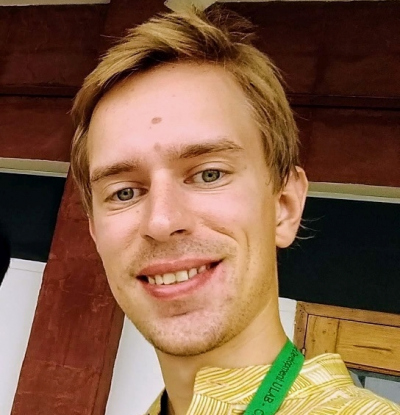- Graduate School GLOMAR
- PhD student members
- Ben Nagel
Ben Nagel
| Institution: | Leibniz Center for Tropical Marine Ecology (ZMT), Bremen |
| Office: | ZMT, room 3103 |
| Phone: | +49 421 238 00 - 128 |
| E-mail: | [Bitte aktivieren Sie Javascript] |
| Other webpage(s): | Ben's ZMT web page |

PhD Project
Operationalizing the social-ecological systems framework to assess sustainability of aquaculture in Lombok, Indonesia
Aquaculture has become the fastest growing food production sector, overtaking capture fisheries in recent years as the primary source of fish for human consumption. For millions of people, aquaculture has become a critical source of livelihood, food security, and nutrition, but the rapid expansion of the sector necessitates knowledge on how it can develop sustainability and equitably. Aquaculture exists as a complex human-technological system often heavily embedded in and influencing the local ecosystem, which this study explores through the lens of Elinor Ostrom’s social-ecological systems (SES) framework.
Ostrom’s work heavily focused on the idea that there are no simple solutions to complex governance problems, and that diagnosing the problems or potentialities of shared natural resource systems requires an understanding of the complex, cross-scale, dynamic social and ecological variables and processes that make up the system. Despite this, many natural resource governance solutions have historically followed a “top-down” approach, prescribing broad “panaceas” without regard to local context and needs.
My project explores these concepts by applying the SES framework to a comparative district-level analysis of the aquaculture SES across the island of Lombok, Indonesia. My aim is to develop a greater place-based understanding of aquaculture governance needs by mapping and analyzing patterns and gradients of social and ecological heterogeneity of the aquaculture system and related sustainability challenges across administrative districts on Lombok. Furthermore, a primary goal of the SES framework was to build a common language of SESs to facilitate case comparisons, which this project will contribute to through integration with a global SES database. Despite its global importance, few studies have analyzed aquaculture as a SES, and the framework developed in this study may serve as a jumping-off point for future case studies.
My PhD project is part of the COMPASS project (Comparing Aquaculture System Sustainability), which aims to develop different types of knowledge (system, target, and transformative) on how aquaculture can transition towards sustainable bioeconomy development.
Thesis Committee
| Prof. Dr. Achim Schlüter | Leibniz Center for Tropical Marine Ecology (ZMT), Bremen |
| Dr. Stefan Partelow | Leibniz Center for Tropical Marine Ecology (ZMT), Bremen |
| Prof. Dr. Andreas Kunzmann | Leibniz Center for Tropical Marine Ecology (ZMT), Bremen |


